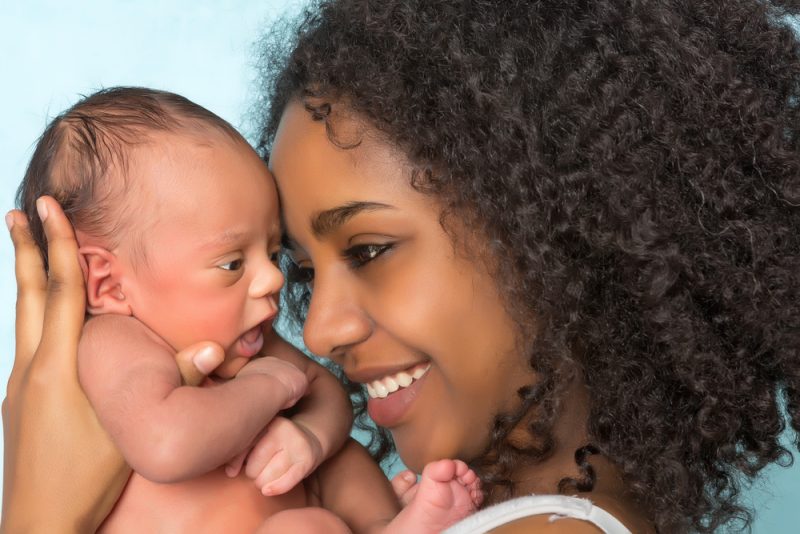
Hear this: Hearing loss is the most common sensory disability in newborns. Roughly 2 to 3 in 1,000 infants in this country are born with a detectable level of hearing loss in one or both ears, according to the U.S. Department of Health and Human Services.
That’s why every state, including Ohio, has an Early Hearing Detection and Intervention program for newborns. The goal is to ensure all infants receive a hearing screening before hospital discharge, or within their first 3 months of life, and receive intervention services before 6 months of age.
After all, your baby’s ability to hear is the basis of their ability to learn. Missed hearing loss may affect a child’s language development, school readiness and educational achievement, literacy levels and social-emotional development.
“A hearing problem that goes undetected can be a real detriment to a child,” said Dr. Marc Nelson, pediatric otolaryngologist and director of Akron Children’s Center for Hearing and Communicative Disorders. “It’s crucial babies receive treatment by 6 months of age for better outcomes in meeting speech milestones and assimilation to their environment. The earlier a hearing problem is addressed, the earlier a child can begin developing communication skills.”
My baby failed the newborn hearing test. Now what?
If your newborn fails their first hearing screening, they will be referred to a pediatric audiologist for a complete hearing evaluation. But don’t be alarmed, a failed first hearing test doesn’t necessarily mean there’s a permanent hearing impairment.
During birth, vernix can get trapped in the ear canal or fluid can get stuck in the middle ear. In addition, movement or crying during the test can influence the results.
Still, it’s important you follow up with an audiologist for diagnostic testing to confirm hearing levels.
If your baby passes follow-up testing and has no other risk factors for hearing loss, no treatment is necessary. Instead, your baby’s hearing will be routinely monitored at primary care well visits throughout childhood. If test results do indicate a hearing loss, your baby will be referred to a pediatric otolaryngologist.
In about half the cases of hearing loss, genetics are to blame. However, infections during pregnancy or complications after birth can cause hearing impairments. In other cases, hearing loss can be associated with other underlying conditions.
“Either way, hearing problems can be overcome if they’re caught early,” said Dr. Nelson. “In fact, many times outcomes can be equal to a child’s normal hearing peers.”
Hearing aids are the primary treatment for hearing loss. But if your baby’s hearing impairment is more severe, they may be a candidate for cochlear implantation, which is intended for patients who do not benefit from hearing aids. Instead of amplifying sounds, cochlear implants placed within the inner ear stimulate the auditory nerve, which carries these signals directly to the brain.
“The earlier the intervention and treatment, the better chance for spoken language,” said Dr. Nelson. “The end game is stimulation to that part of the brain. There’s a development window of opportunity in a child’s first 3 to 4 years of life. Improved access to sound stimulates development of the hearing portion of the brain (auditory cortex). Conversely, lack of auditory stimulation can lead to underdevelopment of these areas, and the negative effects on speech and hearing might be irreversible after that window of opportunity.”
For more information or to schedule an appointment at Akron Children’s Ear, Nose and Throat Center, call 330-543-4930.










